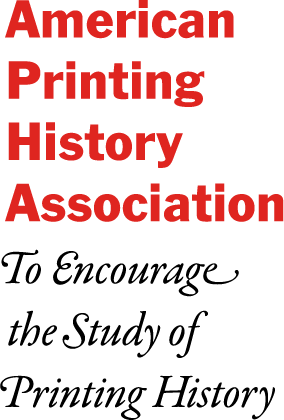Susanna Ashton
The 2004 Winner
Susanna Ashton for work on
William Stanley Braithwaite
Susanna Ashton, Assistant Professor of American Literature at Clemson University, held the 2004 APHA Fellowship for her project “Impressions: William Stanley Braithwaite and Constructions of Type.” The Fellowship will be used by Dr. Ashton to complete her current book project, Bound: Black Men as Book Men, 1820-1920. The first part of Ashton’s book deals with the close connections that developed between printing and slavery in the United States. Her first chapter entitled “Stereotypes,” studies “slaves who labored under printers in the 18th century and how the ‘wonders of print’ came at an especially vexed price for slaves living in the pre-Civil War America, not because of its inaccessibility but because of the way books were often considered more sacred and consequential than the humans who produced the labor to print them.”
Subsequent chapters deal with the Post Civil War era and the legacy of tension over the role of print that slavery had left America. She considers bibliophiles and authors Charles W. Chesnutt, Booker T. Washington and W.E.B. Du Bois and the various ways reconstruction fueled a new generation of African Americans ready to reassert control not only of book, but of print as both a material and an imagined phenomenon. The APHA fellowship will help her complete research and writing of her final chapter on the black printer, poet, and editor William Stanley Braithwaite. Ms. Ashton describes this part of her book:
“William Stanley Braithwaite trained with a printer and a publisher in the late 19th century, and grew up to be a poet, an editor and a literary critic. But what interests me most, as key to understanding his work and his role in American culture, was his work as a printer, publisher and book trade professional. He founded what was arguably the first black-owned publishing company, B.J. Brummer and Co. in 1922 and it is this intimate knowledge of books, print, type and the material production of books that shaped his literary work. For in Braithwaite I see the historic tension between African Americans and books, reworked for the 20th century. No scholars of Braithwaite’s work have put him in the tradition of African-American printing and book culture. My study, which will merge literary and historical analysis, will attend to how he connected his work with the material and with the imaginative book.”
Dr. Ashton will use this APHA fellowship to research the ephemera produced by B.J. Brimmer and Co., and to examine Braithwaite’s printed books and letters.
